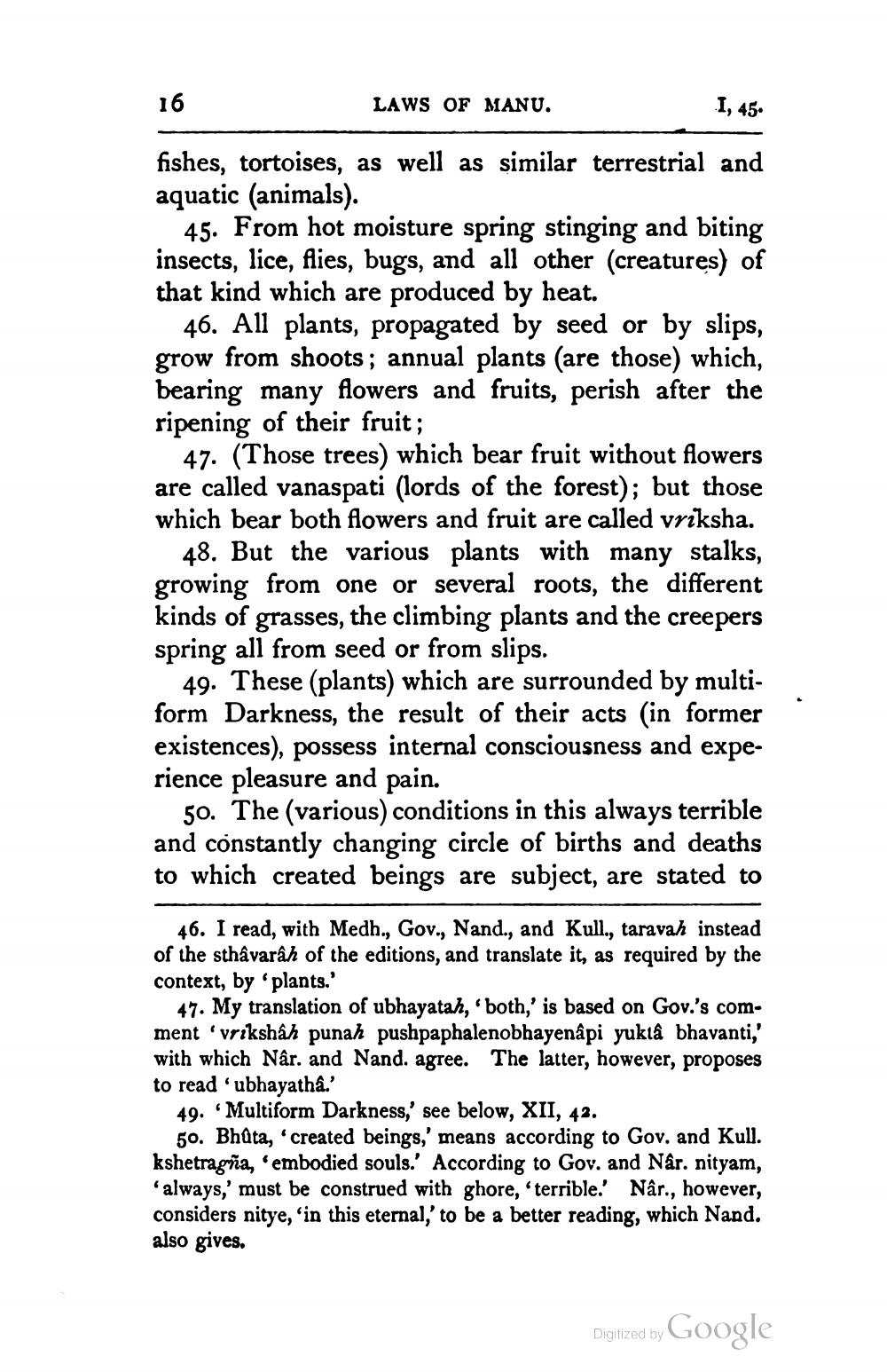________________
16
LAWS OF MANU.
I, 45.
fishes, tortoises, as well as similar terrestrial and aquatic (animals).
45. From hot moisture spring stinging and biting insects, lice, flies, bugs, and all other (creatures) of that kind which are produced by heat.
46. All plants, propagated by seed or by slips, grow from shoots; annual plants are those) which, bearing many flowers and fruits, perish after the ripening of their fruit;
47. (Those trees) which bear fruit without flowers are called vanaspati (lords of the forest); but those which bear both flowers and fruit are called vriksha.
48. But the various plants with many stalks, growing from one or several roots, the different kinds of grasses, the climbing plants and the creepers spring all from seed or from slips.
49. These (plants) which are surrounded by multiform Darkness, the result of their acts (in former existences), possess internal consciousness and experience pleasure and pain.
50. The (various) conditions in this always terrible and constantly changing circle of births and deaths to which created beings are subject, are stated to
46. I read, with Medh., Gov., Nand., and Kull., taravah instead of the sthâvarâh of the editions, and translate it, as required by the context, by plants.'
47. My translation of ubhayatah, both,' is based on Gov.'s comment'vrikshah punah pushpaphalenobhayenapi yukta bhavanti,' with which Nâr. and Nand. agree. The latter, however, proposes to read 'ubhayatha.'
49. Multiform Darkness,' see below, XII, 42.
50. Bhūta, 'created beings,' means according to Gov. and Kull. kshetragña, embodied souls. According to Gov. and Nar. nityam,
always,' must be construed with ghore, terrible.' Nâr., however, considers nitye, 'in this eternal,' to be a better reading, which Nand. also gives.
Digitized by Google




